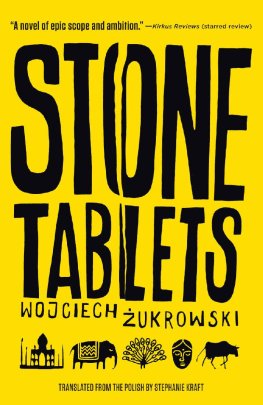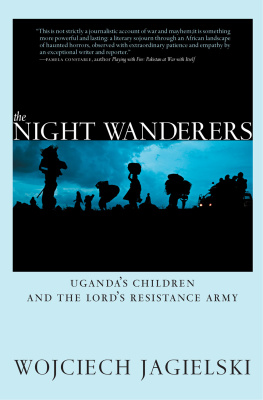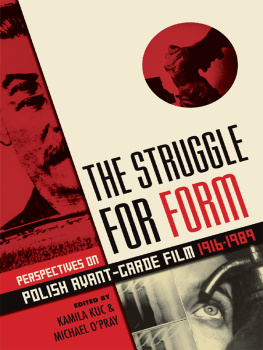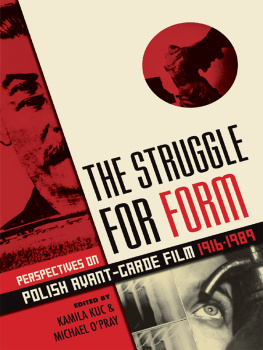Wojciech Zukrowski
Stone Tablets
Over clumps of blinding white the villas in this quarter of New Delhi the sky was growing opaque. Yellow dust rose on the empty horizon, blurring the jagged lines of the treetops. The air was becoming heavy. The heat did not abate, only the source of it changed; fire beat from the blistered reddish earth and burning stones. The flat roofs on which whole families camped at nightfall were still deserted, though the sun had buried itself deep in the palm groves.
Istvan Terey looked reluctantly through the tightly closed window. Behind the glass, through the wire screen on which spider webs and rainbow-tinted dust glinted, he saw a wide lawn, bleached by a long drought. Its grass was trampled down, crushed under the feet of loitering passersby. In a glass clouded with dust he saw his own face, darkened by the tropical sun, its oval lines cut by the sharp white of his collar.
He had stuck at his post in India for two years two springs, rather, for they were the most oppressive: the hot seasons, when work became a torment. A somnolence almost like fainting enveloped the entire Hungarian embassy. People napped over their documents, they wiped sticky palms on linen trousers; their gaping shirts laid chests gleaming with sweat bare to the stream of cool air driven by the fan.
He looked gloomily at the cracked earth, which was taking on a red and violet sheen. Huge flies crashed blindly, with a frenzied buzzing, against the taut screen behind the windowpane, trying to force their way into the house. The toneless knocking, as if someone were throwing dried peas, the angry voices of the insects, the wheezing air from the cooling machine, and the hiss of the blades in the great ceiling fan: this was the music of the Indian twilight. Air full of dead light was suspended over the gardens; fringes of sickly green trailed back into the sky like smoke. Measureless empty space hung calmly, nodding with the evening breeze.
Among the banana trees with their broad leaves like tattered flags stood a watchman in shorts, lavishly watering what greenery remained with a red rubber hose. Sparkling droplets played around the stream. Thirsty starlings dived into the spray, spreading their wings with delight, and waded in the wet grass.
Terey rubbed his forehead. He would have liked to awaken in himself a joy like that of those birds; it was no use. He knew that refreshment well, for he had come from the bathtub only a little while ago. The water had been waiting until he returned from the office. The cook had drawn it at dawn, for during the day the tin collector on the roof grew so hot that the water poured in boiling from the tap. A few weeks more and one will be able to breathe, he sighed, staring dully at the vacant sky, where dust was beginning to pulsate with scent like tobacco.
Monsoons: one only had to hold out until the sudden downpour, and the world was transformed. Everyone waited until the little map appeared in the first pages of the New Delhi newspapers with a chart showing which way the winds bearing the life-restoring moisture were blowing, in which direction the longed-for rains were advancing.
He felt the pleasant coolness of a fresh shirt on his back, and thought with distaste of the white jacket he would soon put on. He dropped into an armchair, stretched his legs, and relaxed. The ceiling fan limped in lazy gyrations, but sent a puff of air that grazed his close-cropped hair. The electric current wavered and the fans mounted in the windows rumbled fitfully. Their sighings blew the aromas of oil, caoutchouc, and dust into his face. The smell of drying stone rose from floor tiles that had been scoured with a wet rag not long before. The dinner jacket hanging from the back of a chair smelled of camphor and insecticide.
Muffled shrieks came from the kitchen as the cook quarreled with his family, who were waiting for the remains of the midday dinner. The drone of motors, the piercing trills of cicadas hidden in the climbing plants on the veranda, made it impossible to doze even for a little while. He heard his own uneven pulse. He felt a desire to smoke a cigarette, but he did not want to reach for one.
The insanity of a sudden wedding in this heat! His face contorted with resentment.
He knew the young couple well, Grace Vijayaveda and Rajah Ramesh Khaterpalia, an officer of the presidents guard. He was even a friend of theirs; he saw them when he attended picnics, rode in hunts. Sometimes they pressed him to stay until the crowd of guests had left, for a chat, as they put it, just among ourselves. The leisurely conversations in a dusk barely lit by floor lamps the long moments of agreeable silence with a glass in the hand and a cigarette, measured by the soft clinking of the golden hoops that shifted with the motion of the girls floating wrist assured him that he was one of their intimate, trusted circle, though he worked at a communist embassy. The notification of Graces wedding had caused him pain; but since the groom himself had called to verify that the messenger had delivered the invitation with its gold engraving, he had to put in an appearance.
It seemed to Istvan that there was something unspoken, yet understood, between the young Hindu woman and himself. Only two weeks ago she had told him how her old ayah had gone on pilgrimage with her begging bowl to obtain a blessing from the gods for her young lady. She spoke in a mild monotone, as if she wanted to create with trivial confidences a camouflage for the wandering of her slender palm around the nape of his neck, the intimate stroking of the temple. He listened to the slow music of her words; he drank in the shy one might almost think, involuntary touches, the half-conscious caresses. Her hand said more than her full lips; it lured, it promised.
He found Grace pleasing. Her mother had been an Englishwoman; perhaps that was why she was less diffident than Indian women, why she did not wait with lowered eyelids and inclined head until a man condescended to notice her, to honor her with a nod. She herself would initiate the encounter.
Her slight, compact body, wrapped in a green sari that veiled her figure while drawing the eye to it, piqued his imagination. Her large, dark eyes seemed fiercely inquiring. Her black hair, gathered into a loose knot, was plaited with a garland of jasmine buds which shed a sweet breath in their dying. Apart from the gold bracelets that jingled on her wrist, she wore no jewelry. Her neck and ears needed no adornment. She knew that she was beautiful. Her narrow, diligently groomed hands were never soiled by work. She was a dowered young lady of the highest caste, an only child.
Upon meeting Istvan, she had asked none of the obligatory questions: Did he like India, how long would he stay, who was he, really, in Europe? Who was he? Or what did he own? Land, factories, houses, stocks? As an employee of the embassy, dependent on the opinions of his superiors, the capricious valuations of other officials, he could be of no importance. He was only a young poet, a good-looking man who had come here for a brief time; a bird of passage, kindly welcomed by a group of people jaded with beauty.
He seized on the startled, knowing glances as they flashed from under the darkly tinted eyelids, signaling that it was worth her while to have him among her docile admirers. He preferred to keep his distance. Distance allowed for timely withdrawals, for escape from humiliation, from words and gestures affirming certain inviolable limits.
Be careful, Istvan, warned Secretary Ferenc. Be careful to keep them from talking about you too much, for thats the end. A report will go out, they will recall you, they will make mincemeat of your reputation, and for years you will be warming a chair in a ministry instead of sailing the wide world.











